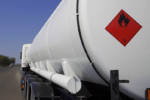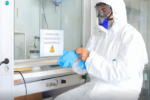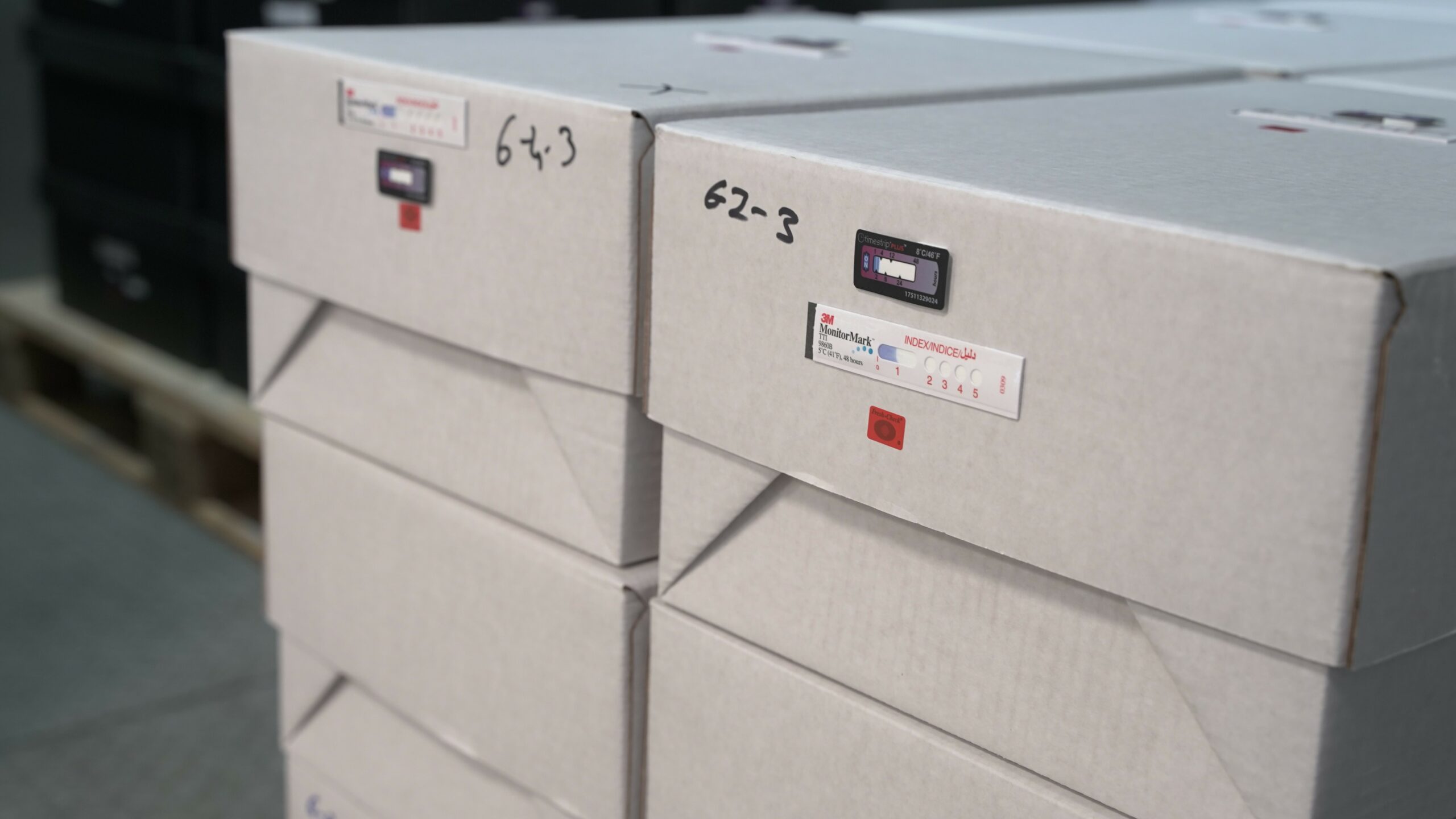Technological consultancy
ITENE helps companies address challenges across the packaging value chain, from developing packaging materials to their end-of-life and waste management.
We also provide consultancy services to businesses about exposure to chemical agents and environmental monitoring. We do this by drawing on our proprietary methods and a team of experts in technology consultancy in the following areas:

Packaging and circular economy
We help you meet the new environmental legislation requirements with a view to 2030 when all packaging will have to be recyclable, reusable or compostable.
We also advise you on how to measure the environmental impact associated with the life-cycle stages of your product, process or service in line with the European Green Deal targets anchored in the milestones it sets for the period up to 2050.
Does my packaging meet circular economy requirements?
-
We help you to find out if your packaging meets the European challenges of circular economy. To do this, we carry out a sustainability diagnosis and advise you on how to prove it. If it does not meet the requirements, we make proposals for improvement to help you meet the target.
-
We demonstrate the sustainability of packaging focusing on recyclability, reusability and compostability.
We analyse your packaging recyclability in line with the criteria set forth in the UNE-EN 13430:2004 standard. We can also help your business with other services such as recyclability calculators, recycled material content and material re-processability tests, eco-label assessment and legislation watch.
We assess the reusability of your packaging in accordance with the UNE-EN 13429 standard. We additionally support you in converting your packaging if it is not yet reusable and we can also develop new management and reuse systems.
We additionally check packaging compostability under UNE-EN 13432:2004 and conduct the tests and draw up the reports needed to earn the main international certification labels (TÜV Austria, DIN CERTCO, BPI and European Bioplastics).
-
We perform life-cycle assessment (LCA) to identify the environmental impact associated with the life-cycle stages of a product, process or service and we quantify its carbon footprint. We can additionally draw up Environmental Product Declarations (EPD) with the Environdec® system and also check them if you already have an LCA for your product.
In addition, we quantify and prepare your company’s emissions inventories to certify your corporate carbon footprint with ISO 14064.
Ecodesign and packaging optimisation
We bring you our know-how and specific methods for improving and optimising packaging at any of its specification, design, pilot upscaling or manufacturing development stages. We can do the same for packaging which is already on the market but has problems, room for improvement or no longer complies with today’s trends and current legislative requirements.

How can I optimise my packaging?
-
We help you upgrade your packaging designs to meet contemporary market and stakeholder needs and consumer perceptions. We engage in the whole process from the idea, design and validation to final implementation by analysing:
- Materials
- Barrier properties
- Labels
- Inks and adhesives
- Additional components (zips, caps, valves)
- Recycled material content
- Product shelf-life
- Consumer perception
- Costs and its manufacturing process
-
We are familiar with changes in product transport and the key approaches required to meet the challenges posed by omnichannel distribution, the rise of e-commerce and the requirements of goods transport and environmental legislation as part of the circular economy.
We harness all this knowledge and our proprietary methods to help you achieve the optimal packaging system that works and doesn’t misfire in your transport chain by addressing issues including:
- Eco-design of your packaging system
- Finding more sustainable materials
- Advice and validation of your new developments
- Identifying the source and resolution of transport incidents
- Packaging SKU standardisation
-
Standardising logistics formats optimises time, costs and environmental impact. To achieve this goal, we deliver consultancy services in:
- Dimensional standardisation of packaging SKUs.
- Optimising logistics times and process automation.
- Identifying safety factors in the packaging system.
- Market research and comparison with commercial solutions.
- Recommending the optimum qualities of the packaging system’s components.
- Minimising incidents associated with the packaging system.

Food safety and product shelf life
We supply customised advice and consultancy to check compliance with the safety requirements of the material for contact with food and cosmetic products. In the case of new substances, we support companies throughout the process of submitting technical dossiers to secure authorisations from risk assessment agencies such as EFSA, FDA, and BfR.
In product shelf-life analysis we conduct studies to ascertain the product’s longevity with an eye to choosing the most suitable packaging materials and technologies for optimum preservation, storage and transport.
Is my food packaging safe and optimal for my product?
-
We help companies in drafting and/or reviewing declarations of conformity for each material and identifying a testing strategy to confirm the safety of the material for contact with food and cosmetic products and comply with legal requirements for each material.
-
We provide technical assistance and support during the entire process of drawing up, submitting and evaluating technical dossiers to international and national risk assessment agencies (e.g. EFSA, FDA, BfR, etc.) to obtain authorisations for new substances for food contact materials. This includes:
- New substances for inclusion in plastic materials
- Substances in nanoform
- Plastics recycling processes
- Active and smart packaging
- Food additives
-
At ITENE we undertake studies into the shelf-life of various types of products such as food and cosmetics to validate materials developed as part of innovation or R&D projects and also compare different types of materials during the selection or modification stages of packaging conditions or materials.
We use custom methods including aspects such as:
- Studying the product’s performance and degradation mechanisms.
- Ensuring the product is packaged using the specified packaging and packing conditions.
- Monitoring critical shelf-life parameters based on the main physicochemical, microbiological and organoleptic product degradation mechanisms.
Transport safety
We advise you on how to ensure the safety, stability and proper stowage of your goods in compliance with Royal Decree 563/17 requirements.
In dangerous goods transport, we can be your external safety adviser or support your team by drawing up the documents needed to meet the requirements which ensure the safety of your employees, customers and users under the specifications of the ADR, IMDG, IATA/OACI and RID international agreements.

What legislative requirements apply to the transport of my products?
-
Royal Decree 563/17, which makes European Directive 2014/47 on the technical roadside inspection of the roadworthiness of commercial vehicles circulating in the Union part of Spanish law, sets out special requirements to ensure the safety, stability and proper stowage of goods and lays down new responsibilities for both shippers and carriers. Failure to comply with them entails penalties and even immobilisation of the vehicle if serious and dangerous irregularities are found.
ITENE provides specialised external support to enable compliance with the responsibilities stipulated under legislation and avoid the penalties and costs derived from infringements through:
- Assessment of the current state of compliance.
- Establishing protocols for proper implementation of Royal Decree 563/17 specifications.
- Drawing up the documents required, endorsed by ITENE, for any inspection carried out by the authorities.
- Validation of load units by means of tests as per the EUMOS 40509:2012 standard (Test method for load unit rigidity)
- Staff training to ensure goods are stowed appropriately.
-
We advise you to ensure that loading, unloading, filling, packaging, transport, storage and handling of this type of goods are performed safely, thereby eliminating or minimising potential risks for people and facilities and also to the environment.
We do this as per the ADR, IMDG, IATA/OACI and RID international agreements which regulate issues including:
- Hazardous materials classification guidelines
- Authorised packaging types
- Packaging marking and labelling
- The necessary transport documents
- The types of vehicles, signage, special equipment and certificates required.
- Training for drivers and workers involved in activities related to these goods
- Loading, unloading and stowage of these goods

Sustainable mobility
We support you in rolling out sustainable mobility plans by assessing the environmental impact and feasibility of solutions such as introducing EV fleets to deliver your products.
We also advise the transport and logistics industry on how to optimise goods, fleet and route management to address sustainability and digital transformation challenges.
How can I improve transport and distribution sustainability?
-
We advise you on migration to new mobility patterns by analysing the potential inclusion of electric vehicles in transport fleets for long-distance and last-mile transport:
- Assessing and analysing EV fleet viability using implementation models.
- Advising you on the choice of vehicles and the charging infrastructure required (charging stations, smart management systems, etc.).
- Evaluating the environmental impact of deploying this type of vehicle.
-
We foster goods logistics improvement geared towards building trust between stakeholders (suppliers, retailers, logistics operators and consumers), product traceability and cost savings by reducing inefficiencies in logistics and transport processes.
To achieve these objectives, we furnish advice on:
- Assessment and optimisation of logistics and transport routes
- Route optimisation for collecting and transporting waste for recovery (identifying circular models).
- Specifying and designing logistics models for:
- Delivery and returns
- Last-mile logistics
- Optimised transport systems
- Reverse logistics chains for circular models
- Reusable packaging pools
Exposure to chemical agents and environmental monitoring
We provide advice on a range of issues including chemical management, exposure to nanoparticles, particulate matter, gases and pathogens in the environment and the effectiveness of personal protective equipment (PPE).
Our services enable companies to make better decisions and introduce corrective measures to make their workplaces safe environments.

How can I ensure workplace safety?
-
We provide advice on chemical safety management for CLP, REACH and APQ and for registering biocidal active substances.
-
We assess safety in exposure to chemical agents, aerosols, particulate matter and nanoparticles in industrial and urban settings.
We audit the risk management measures implemented in the company and identify containment and mitigation measures to deal with chemical and biological hazards.
-
We are qualified experts in indoor air quality, and we develop technology for detecting gases, particulate matter, pathogens and relevant chemical compounds in the environment. Our technical consultancy services include indoor air quality assessment services based on monitoring parameters such as CO2, CO, temperature, humidity, particulate matter and pathogens to decide on the implementation of a plan to minimise health and wellbeing risks in public areas.
More info here.
-
We provide toxicological screening services for products and their applications anchored in standardised methods and we advise you on the risks associated with each of the options so that you can choose the one that best suits your needs.
-
We provide chemoinformatic methods such as read-across and quantitative structure-activity relationship (QSAR) mathematical models and advise you on the risks associated with the physicochemical, biological and environmental properties of chemical agents and nanomaterials so you can make informed decisions.
-
We provide advice on exposure to respirable crystalline silica dust in work environments under the requirements set out in the new Royal Decree 1154/2020 which establishes an exposure limit value of 0.05 mg/m3 and lays down responsibilities in industries not previously covered.
At ITENE we have the technology needed to measure respirable crystalline silica and we use our know-how and expertise to identify and implement corrective measures to protect health and cut costs in industrial processes.
-
In personal protective equipment we provide:
-
- Consultancy projects for choosing the best PPE for the risks identified in industrial facilities.
- Training in PPE use and maintenance
- Analysis of PPE technical dossiers for verifying the marking, labelling and technical information available.
-
Download our consultancy services brochures
-
How can I help you?
Nuria Herranz
Technological Consultancy, Technical Assistance and Innovation Manager
"*" indicates required fields










